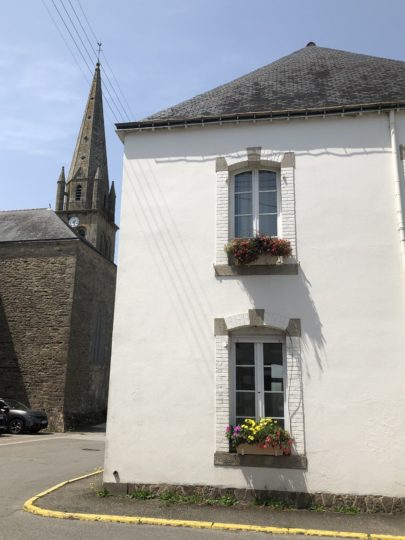This is the third post in my series on Buying Property in Paris. Before reading this, you may want to read about my thoughts and experiences on pre-search preparations and the apartment search. I reiterate that these are just my personal experiences with the property market in Paris this year. But my hope is that by sharing some of my observations and tips, focusing in particular on differences between my property purchase experiences in France versus the U.S., I will help you decide if buying is the right choice for you, and if so, help you prepare a bit for the process.
For further details on purchasing property in France, I recommend visiting the Adrian Leeds Group site and also the AngloInfo France site.
The Offer Letter
So now you have sent in your offer letter. The seller will either countersign the letter or come back with a counteroffer. Remember that even once the seller countersigns, this letter is not legally binding. So if you are 100% certain you want to buy the place, push for a signing of the actual purchase agreement (compromis de vente) as early as possible. If you want additional time to diligence the place, delaying a bit may be in your best interest.
The Deposit
The seller will usually require a 10% down-payment. If you are not able to pay the 10% (or if you prefer not to pay the full amount until closing), you may be able to work out something with your bank such that they pay a portion. If this is your preference, start talking with your bank early.
Count on several hundred euros in notary fees at the time of the signing as well.
Terms of the Purchase Agreement
Purchase Agreements are relatively standard. Most of the information (about the property itself) will come from the seller’s agent. Unless you are requesting something out of the ordinary (more on this below), the only substantive information that will likely need to be provided by the purchaser is the terms of the clause suspensive (contingency provision) relating to the mortgage. Purchases in the U.S. are generally contingent on the purchaser obtaining financing. But in France, it is customary to specify the terms of the financing needed to go through with the purchase. In other words, you specify the minimum loan amount you would need, the minimum term of the mortgage and the maximum interest rate. If you are denied for a loan on these terms or better by two different banks, you are not obligated to go through with the sale.
I promised to write more on requesting something out of the ordinary. Generally, the seller is under an obligation to show you any possible defects known to him or her, but the seller is not obligated to make repairs before the purchase. Under certain circumstances, however, it may be logical for the seller to make the repairs. This is something that you can negotiate. One warning, however: when I tried to negotiate a minor repair into my purchase agreement, the notary informed us that for technical reasons relating to my deposit money in escrow that I will not get into here, the purchase agreement would not actually be binding if we included this obligation to make the repair. I’m sure there is some way around this, but I would recommend discussing it with the notary in advance if you want to negotiate repairs into the agreement.
The Actual Signing
The signing takes place at the notary’s office. You may choose to have your own notary (at no extra cost), or the seller and purchaser may share one notary. The seller and purchaser must attend (unless they have signed powers of attorney for someone else to represent them) and each party’s agent would attend as well. The notary will have a draft of the purchase agreement and will read through the agreement, not word for word, but giving a detailed summary to be sure you understand everything. There are also appendices to the purchase agreement: certificates stating the exact size of the apartment, any lead and asbestos content, the flood and earthquake risk of your property, last three years’ condo association meeting minutes, etc.
Be sure to ask any and all questions if there is something you do not understand. You will be asked to initial all the pages of the agreement and appendices and sign the agreement. You will receive a copy and one will also be forwarded to you by return-receipt mail.
Now that you have signed the purchase agreement, it is binding on the seller. However, the buyer still has seven days (a “cooling off” period) to change his or her mind and have the 10% deposit returned.
***
Have you purchased property in Paris? Or have you started looking? What other tips do you have for those thinking in the process of searching?




